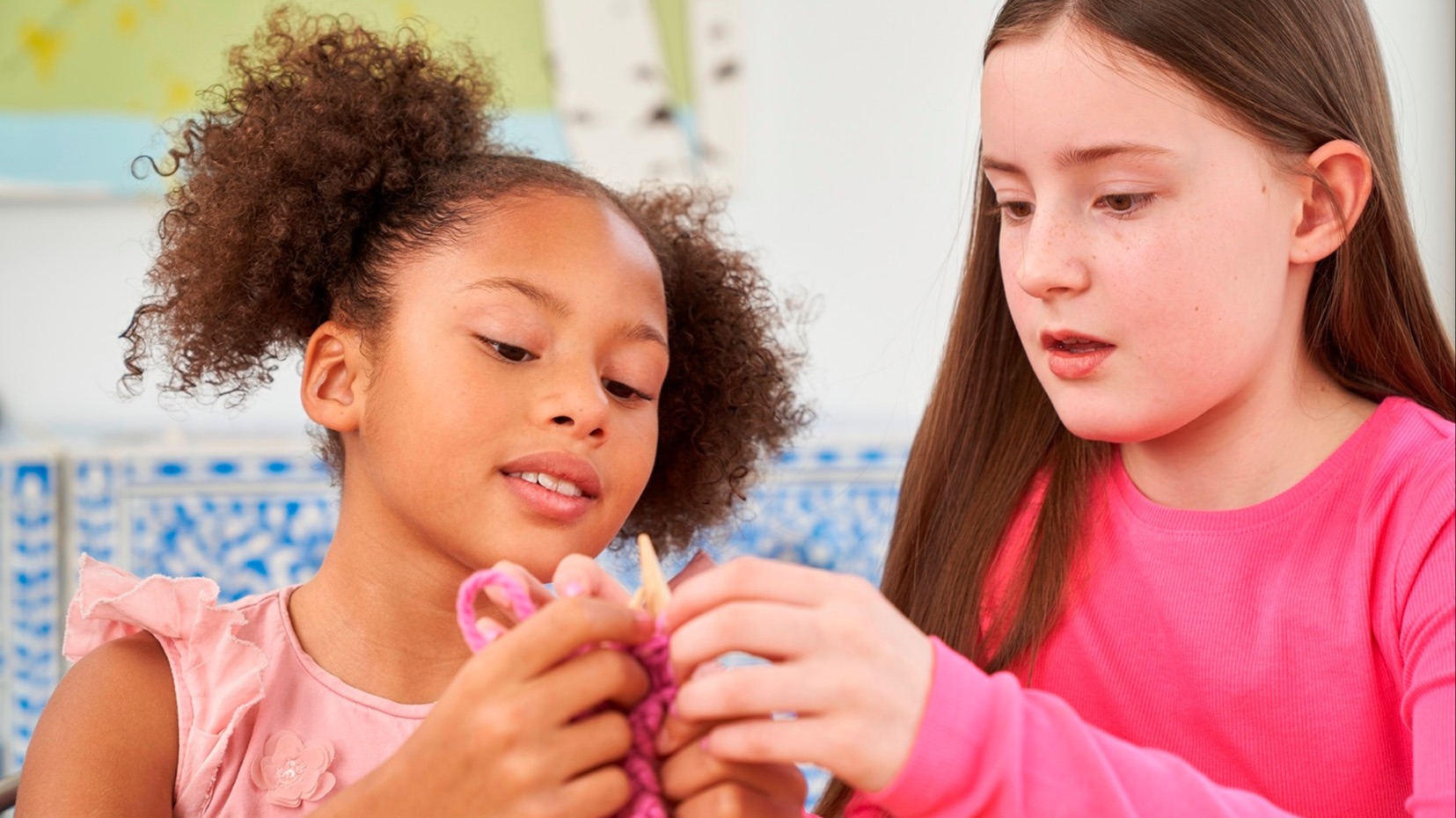Why Knitting is Good For Children

In a world dominated by digital devices and fast-paced activities, some might think teaching children to knit is a bit of a quaint notion. However, the benefits that knitting brings to children extend far beyond the fun of playing with wool. Here, we explore the various ways in which knitting can positively impact a child's development.
-
Enhancing Fine Motor Skills: Knitting involves intricate hand movements, promoting the development of fine motor skills. As children manipulate the yarn and needles, they refine their hand-eye coordination and dexterity. The repeated motions required in knitting contribute to the strengthening of small muscles in the hands and fingers, setting a solid foundation for various future activities.
-
Boosting Concentration and Patience: The rhythmic and repetitive nature of knitting encourages children to focus and concentrate on their work. Following a pattern or counting stitches requires attention to detail, fostering patience and perseverance. As they watch their creations slowly take shape, children learn the value of persistence and delayed gratification.
-
Cognitive Benefits: Knitting is a cognitive workout for young minds. Reading and interpreting patterns stimulate the brain, fostering problem-solving skills and spatial awareness. Children develop the ability to plan ahead, organize their thoughts, and follow a sequence of steps, which are valuable skills applicable in various aspects of their academic and personal lives.
-
Creativity and Self-Expression: Knitting provides an artistic outlet for children to express themselves. Choosing colors, textures, and patterns allows them to unleash their creativity and develop a sense of personal style. This creative freedom helps build confidence as children take pride in their unique creations.
-
Stress Relief and Emotional Well-being: The repetitive nature of knitting has a calming effect, making it an excellent stress-relief activity for children. As they focus on their stitches, they may find a sense of tranquility, helping them cope with anxiety or nervous energy. Knitting can become a mindful practice, promoting emotional well-being.
-
Social Connection: Knitting is a skill that transcends generations. Learning to knit can be a bonding experience between children and their parents, grandparents, or other mentors. It provides an opportunity for shared experiences, stories, and laughter, fostering a sense of connection and family traditions.
Knitting is a versatile and enriching activity for children and if you've ever thought of becoming a knitting teacher, Knitting For All is here to help! We provide all the necessary expertise, patterns, teaching plans, and support. Joining Knitting For All ensures that you have the resources to make a meaningful difference in the lives of children and adults alike.

